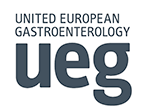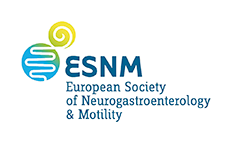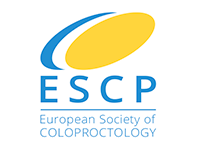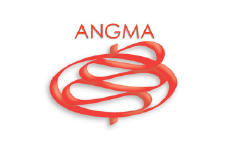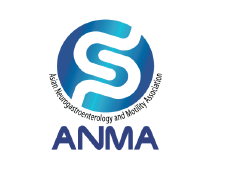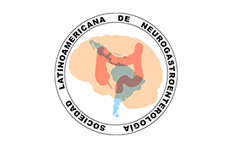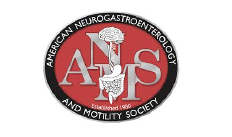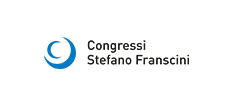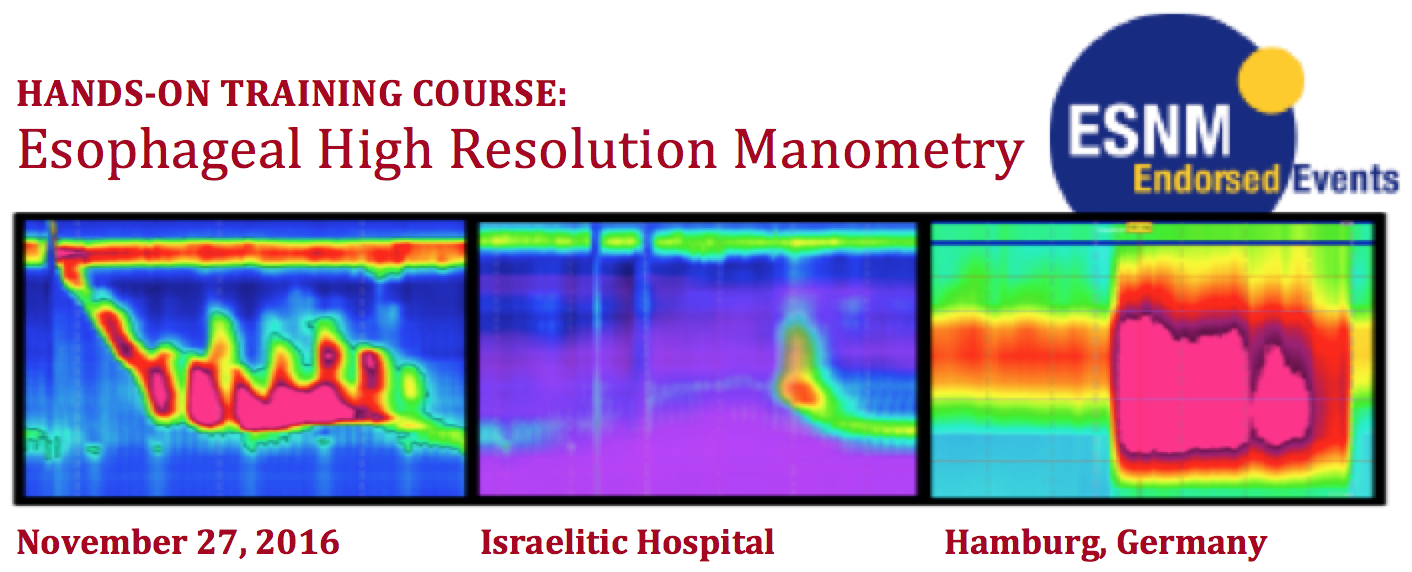
Supported by the International Working Group for GI Motility and Function
Endorsed by ESNM
Course Director: Jutta Keller
Invited Faculty:
Adam Farmer, Queen Mary University of London, Wingate Institute of Neurogastroenterology, London, UK
Mark Fox, St. Claraspital Basel and University of Zürich, Switzerland
Sabine Roman, Digestive Physiology Hopital Edouard Herriot, Lyon, France
Serhat Bor, Ege University School of Medicine, Bornova Izmir, Turkey
Program
08.30 – 08.45 Welcome and entry exam
Course language: English
Also available in: German, French and Turkish
08.45 – 10.45 Group 1:
Introduction to HRM for assessment of esophageal motility, function and symptoms
Theoretical and Historical Background
Serhat Bor, Bornova Izmir, Turkey
Standard Operating Procedures and systematic analysis according to Chicago Classification v3.0
Jutta Keller, Hamburg, Germany
Adjunctive tests: Rapid drink challenge, solid swallows
Mark Fox, Basel, Switzerland
Adjunctive tests: Pharmacological challenge
Adam Farmer, London, UK
HR(I)M and GERD
Sabine Roman, Lyon, France
Other tests for reflux-monitoring
Serhat Bor, Bornova Izmir, Turkey
08.45 – 10.45 Group 2: Hands-on-training
Jutta Keller, Mark Fox, Sabine Roman
10.45 – 11.00 Coffee break
| 11.00 – 13.00 | Group 1: Hands-on training Group 2: Theoretical background |
13.00 – 14.00 Lunch (“Meet the Professor“)
14.00 – 16.00 Case Discussion
Dysphagia related to major and minor motility disorders, symptoms suggestive of gastro-esophageal reflux disease, challenging cases
16.00 Departure
For application and registration please contact Jutta Keller
Expected Learning Outcomes:
After completion of the course attendees will understand:
- The historical development and theoretical background of high resolution manometry (HRM)
- Standard Operating Procedures for performance of an investigation and internationally accepted parameters for standardized analysis
- Why, when and how to apply adjunctive tests such as rapid drink challenge, solid swallows and pharmacological challenges to gain relevant clinical information
- The significance of HRM in reflux disease, particularly if combined with impedance
- The additional impact of other tests for reflux-monitoring
Attendees will be able to:
- Use software tools for analysis of routine and extended HRM
Attendees will have amplified their understanding of
- Adequate performance and analysis of diagnostic measures in complex patients with dysphagia
- Adequate performance and analysis of diagnostic measures in complex patients with reflux symptoms
“German doctors wishing to apply for EACCME credits please follow this link“

